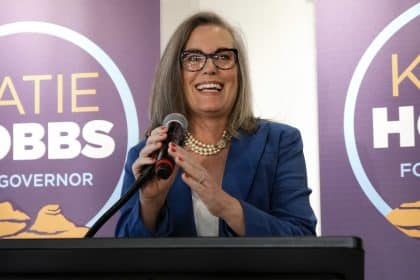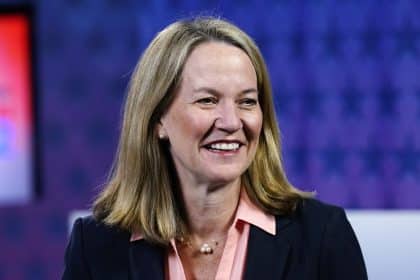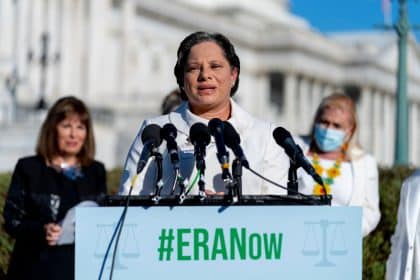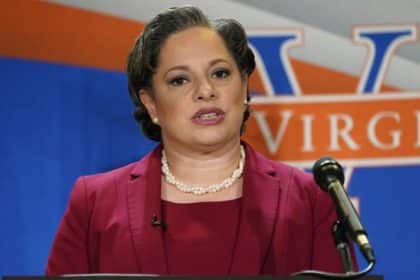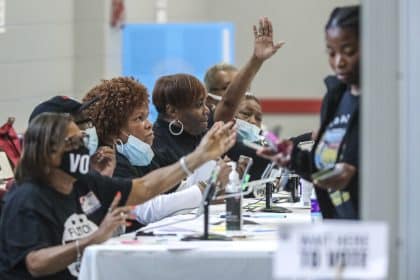In North Carolina Growing Suburbs Create Midterm Uncertainty

GREENSBORO, N.C. — While most of the nation is looking to North Carolina as one of the battleground states where control of the U.S. Senate may well be won, North Carolinians themselves are far more interested in a race way down the ballot, which they say could impact the state’s politics for years to come.
“Frankly, the U.S. Senate race between Cheri Beasley, a Democrat who was chief justice of the North Carolina Supreme Court, and Rep. Ted Budd, a Republican, has been probably the most boring Senate race we’ve ever had,” said Hunter Bacot, a professor and director of graduate programs in the political science department of the University of North Carolina at Greensboro.
Even with Democrats nationwide targeting the swing state as one where they have a real shot at flipping a seat in the evenly split chamber?
And one in which both former Presidents Barack Obama and Donald Trump are throwing their support behind their respective party candidates?
“What you have to understand is that this is a state that was once represented in the Senate by [Republican] Jesse Helms,” Bacot said. “I grew up with Jesse Helms and oh, he was just vicious. In fact, when people started talking about negative campaigns on a national level, we just shrugged. It was nothing new to us.
“So by comparison, this race has been kind of a yawn,” he continued. “I mean, both Beasley and Budd are on the air with ads, but most of the mud that’s been slung has come from third-party groups. For the most part, the candidates themselves have remained pretty civil to one another.”
Bacot said while many outsiders describe North Carolina as a “purple” state, in reality it remains “center right.”
“So for a Democrat to win, they have to really overperform and I don’t see that happening in Beasley’s case. That said, we’re just days away from election day and [the] race continues to be tight. So the outcome is going to be determined by turnout.
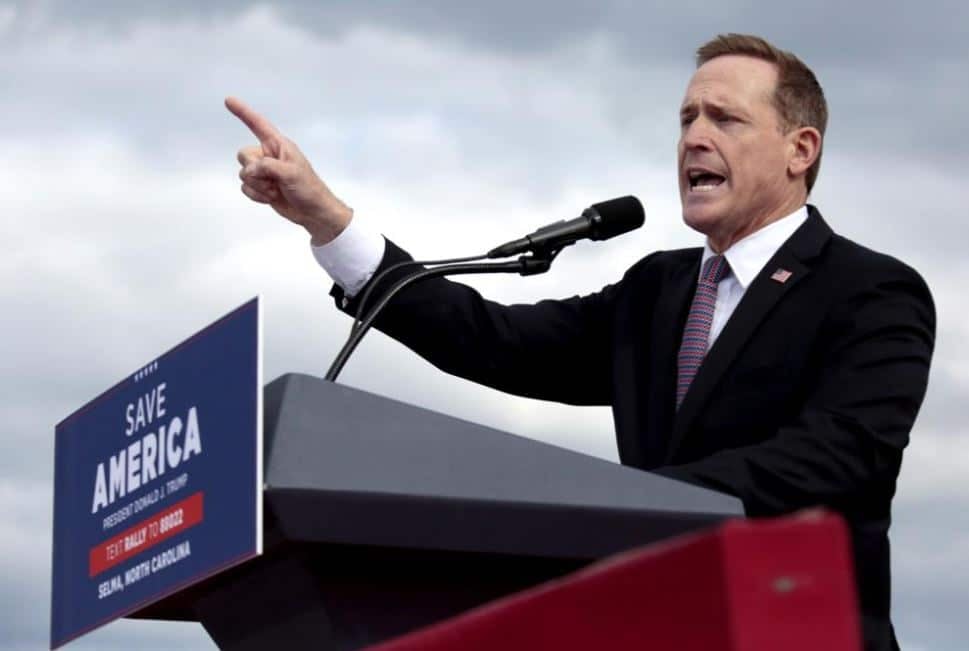
“The key to me is going to be the suburban vote. If they turn out, depending on which way they go, that’s going to determine the outcome of this race,” he said.
Bacot explained that he’s tempted to give the edge to Republican candidates in the state because the party, in large part due to Helms, who died in 2008, and his longtime political strategist, Carter Wrenn, did such a good job building the GOP’s political infrastructure in the state.
“That infrastructure is just incredible. They did a really good job,” he said.
“The other thing the Republicans have to their advantage is the so-called ‘wings’ of the state, the rural areas west of Interstate 77 and east of Interstate 95. Those areas are pretty much Republican lockdowns,” Bacot continued. “So the only change the Democrats have had to win historically is by performing really well in the central corridor, between the interstates — an area that runs from Charlotte through Greensboro and from West Salem to Raleigh.”
GOP Fighting for Supermajority in State Legislature
If North Carolinians are getting excited about the upcoming election, it’s largely due to state races — the Republican drive to regain supermajorities in the state House and Senate, and the contest for state Supreme Court judge, which could swing the court majority to Republicans and reshape the debate in the state over political gerrymandering.
“There are probably about a dozen state legislative races that people are really paying attention to, and the Republicans only have to pick up three seats in the state House and two seats in the state Senate to get their supermajority and, with it, the ability to override Democratic Gov. Roy Cooper’s vetoes.
“But that said, the most important races in the state will determine control of the state Supreme Court,” Bacot said. “Why are they so important, you might ask? Because there are currently several cases in the court — including one in the U.S. Supreme Court — regarding political gerrymandering.
“The recent redistricting really upset some people because those in control of the process made it all so political. I mean, everybody knew the process was political, but what they did with the maps this time was just a blatant shot over the bow.
“The thought is, if the Republicans manage to flip the state’s highest court from its current Democratic majority, the GOP will no longer have any legal concerns when it comes to how they want to draw the next map — that a newly constituted Republican court majority will just say everything is okay.
“So that’s where I think the focus is here,” Bacot said. “And the U.S. Senate race, though it’s noticeably picked up a bit in recent weeks, is humming along, almost in the background.”
Like their counterparts in other Senate races, Beasley and Budd are following a now familiar script. She’s hitting Budd on the abortion issues, while he’s hammering away at her on the economy.
And both are trying to capture the votes of unaffiliated voters, the largest voting bloc in the state.
“Of course, we, as political scientists, know that ‘unaffiliated’ is just a name. Most of those people lean one way or the other … and out of the 36% or so of voters who identify themselves that way, probably only about 7% are truly unaffiliated — but in North Carolina that makes a big difference, even Jesse Helms used to win by a margin of only 52% to 48%,” Bacot said.
“If someone wins here by as much as 3%, we consider that a landslide,” he added.
Asked which issue might turn this year’s election, Bacot leaned toward the economy, but said the abortion issue is a real wild card this year.
“People have been talking about abortion and the women’s vote, characterizing it as a ‘woman’s issue,’ but it’s really not. If you look at it as a matter of civil liberties, it’s everybody’s issue,” he said. “So on the one hand, political scientists are trying to gauge the anger and frustration of women voters and whether it will drive them to the polls in great numbers.
“At the same time, you have men that say, ‘I am pro-choice.’ But we don’t know what that means in terms of voter turnout,” he said.
“It’s much easier to focus on inflation, because inflation affects everybody — even in a state like North Carolina, which is otherwise doing pretty well economically,” he said. “Inflation affects people purchasing goods, it affects businesses. I mean, even sending your kid to school with a bag lunch is going to cost more. … So it has a watershed type of effect.
“That’s why I think of abortion as being the wild card issue this year,” he said. “You can predict that a certain number of voters are going to vote on their pocketbooks. We won’t be able to quantify the impact of the abortion issue until the votes are counted and exit polls are taken.”
Influx of New Arrivals
When it comes to polls, Bacot knows from whence he speaks. For many years he was director of the Elon University Poll. One thing he looked at then that could have an impact on the election two weeks from now is the influx of northerners who have relocated to North Carolina in recent years.
“What we’ve found is that typically, these new residents wouldn’t have been considered Democrats up north, but they’re not really Republicans in the southern sense either. So these are the people you see becoming part of our unaffiliated voter pool,” he said.
“Now, in reality — and I’m going to hedge here because I’m giving an opinion and don’t have hard and fast evidence — I think most of these new arrivals are probably pro-business Republicans at heart. They might not be social conservatives, but they are certainly not liberal.
“Back in the day in North Carolina, we used to say that the Democratic Party was really a two-party system unto its own,” Bacot said. “You had conservative Democrats and then you had the moderate Democrats.
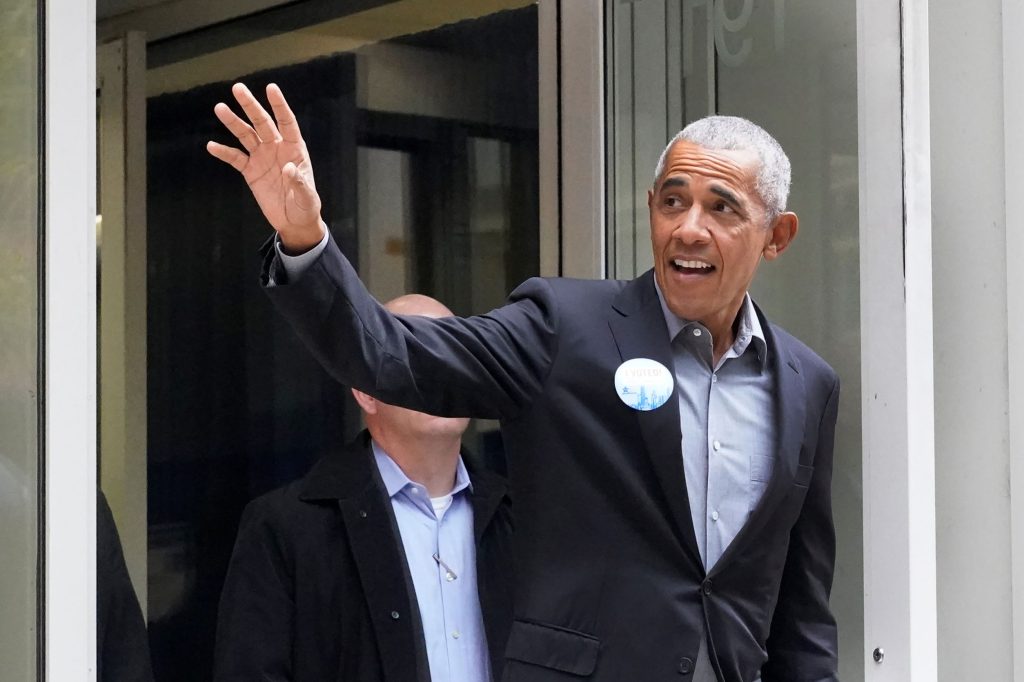
“Today, you still have your moderate Democrats — but we just label them Democrats. Now, conservative Democrats are labeled as Republicans — and a lot of affiliation can be attributed to where new arrivals settle.
“If they move to Brunswick County, which is down near Wilmington, they’re going to be moving into the most Republican county in the state and I think they’ll be more apt to identify themselves as party members or supporters. If they move to the Raleigh area, which has grown dramatically because of the tech industry, they might tend to be more Democratic or unaffiliated.”
A State in a State of Flux
It was a good 20 or so minutes into the conversation with Bacot that the name Donald Trump was mentioned. Is he losing his appeal in North Carolina, the reporter wondered?
“No, Trump remains a very large presence here, mainly among the disaffected White voters, people who feel the government and their elected representatives have left them behind,” Bacot said.
“Basically his supporters here are voters who already felt disenchanted with the status quo and then Trump came along and said, ‘I’m going to give them hell in Washington’ and they just latched onto him,” he said. “They said, ‘He’s going to shake them up and I’m going to vote for him.’
“Now, the question is, how sustainable is that, over time. Typically, what happens with disaffected voters is they eventually roll back into the fold,” he continued. “I mean, it’s kind of like what we saw with the Tea Party. The Tea Party came to power largely by appealing to disaffected voters and it ultimately faded.”
There’s also another dynamic at work in the state that is perhaps as unsettling to the status quo in North Carolina as Trump ever was or ever will be — the changing demographics of the state.
“I definitely think that’s the most unsettling aspect of politics in the state as we know it, and it’s happened because both Charlotte and Raleigh are now top 20 metropolitan areas,” Bacot said.
According to the professor, the growth of the two cities has been accompanied by a corresponding growth in money and wealth in the middle of the state, and has “introduced urban areas like we have not known before in the state.”
Becot, raised in Charlotte in the 1980s, said he remembers it as a small city with a population hovering at about 300,000 people. Today its population is above 900,000 and growing.
Raleigh is about half that size, but it is growing at an even faster pace, and could actually catch up to Charlotte over the next several years.
“The thing you have to remember about this growth is that while the growth of the cities proper is one thing, it also fuels the growth of a suburban ring around each urban center; Charlotte is already surrounded by a true suburban ring comprised of the surrounding counties, and Raleigh is about a decade away from having one of the same size.
“Basically what I’m talking about is the Research Triangle. You have Chapel Hill in Orange County, Durham in Durham County and Raleigh in Wake County … those are all now urban counties … and now you’ve got Lee and Johnston counties, which are adjacent to Raleigh and they’ve started growing into true suburbs.
“What this means is we’re starting to see the rise of the suburban voter and that’s throwing all kinds of uncertainty into our politics because they wax and wane,” Bacot said. “It was suburban voters in North Carolina who voted for Obama and then they elected Trump.
“It’s almost a whack-a-mole situation … where you have to wait and see who’s going to pop out for the voters, and I’ll tell you, it drives people like me, and the pollsters, crazy. Because you just don’t know — especially with all the competing dynamics we’ve got this year. The magic eight ball is just not working for this election.”
A Year of Surprises?
Asked what would truly surprise him the morning after the election, Bacot quickly answered “a Democratic sweep … because that’s not likely to happen.”
“Now if Cheri Beasley won the Senate race … I don’t know if it’d be a great shock. That would fall into the more modest category of the unexpected,” he said.
Bacot said the bottom line when it comes to elections in North Carolina is that “we’ve always been the ‘Peyton Place’ of politics, if you’re old enough to get the reference. We’re just a soap opera … and we’re very vivacious in our politics. We enjoy it.”
“I know it defies convention a lot of the time that we tend to just march on and do our own thing … but in the final analysis, we provide entertainment for the nation when it comes to elections and we will continue to do so,” he said.
Dan can be reached at [email protected] and @DanMcCue


















